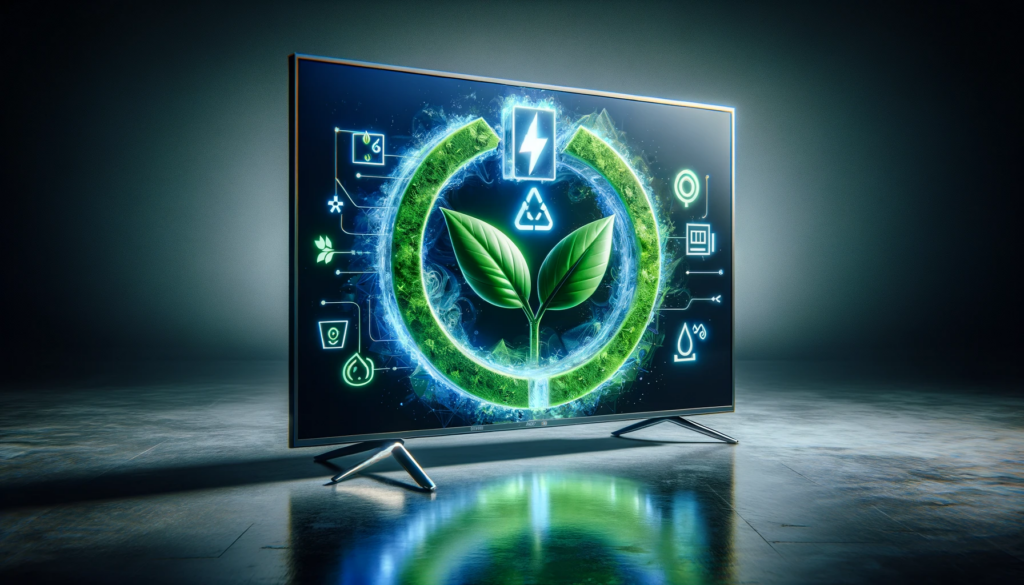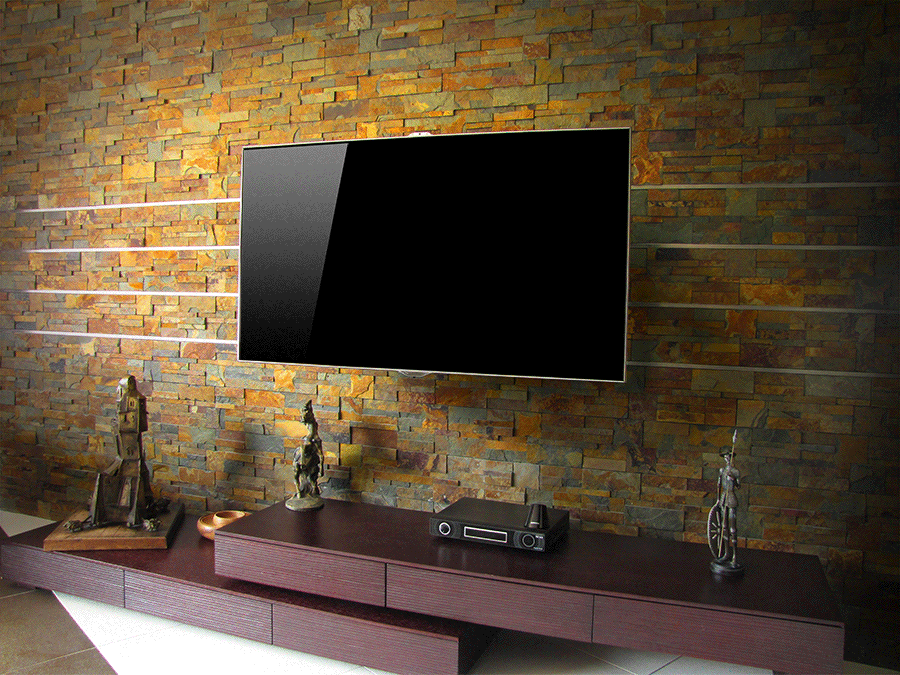
Before we do a deep dive into the world of Crystal UHD and QLED TVs, here’s the lowdown:
Crystal UHD vs. QLED: The Final Verdict
- Resolution and Detail: Crystal UHD wins if you’re after ultra-high-definition clarity and detail.
- Color and Brightness: QLED takes the crown for vibrant colors and eye-popping brightness.
- Budget-Friendly: Crystal UHD is kinder to your wallet, offering a great middle ground between quality and cost.
- Luxury Viewing: If you’re ready to splurge for the best color and brightness, QLED is your go-to.
- Energy Efficiency: Crystal UHD is more energy-efficient, making it a greener choice.
- Longevity: Both offer good durability, but QLED might have a slight edge in lifespan.
The best TV for you depends on what you value most in your viewing experience – be it detail, color, cost, or environmental impact.
Understanding the Basics
Before diving into the nitty-gritty, let’s break down what these buzzwords mean. Think of Crystal UHD and QLED as two different paths to achieving your TV-viewing nirvana.
Crystal UHD: The 4K Powerhouse
Standing for Ultra High Definition, Crystal UHD isn’t just a fancy term. It’s about packing more pixels into your screen than you thought possible. Imagine a jump from Full HD’s 1080p to a whopping 4K resolution. That’s Crystal UHD for you – a detail-rich, crisp image that makes your old TV look like a relic.
QLED: Quantum Leap in Color
QLED, or Quantum-dot Light-Emitting Diode, sounds like something out of a sci-fi novel, right? But it’s actually Samsung’s answer to traditional LEDs’ color and brightness limitations. These quantum dots are tiny nanocrystals that, when hit by light, glow like tiny fireflies on your screen, producing vibrant colors and deep contrasts.

Crystal UHD: Features and Benefits
With Crystal UHD is all about clarity. You’re not just watching a movie; you’re practically in it. The high pixel density means you won’t miss the subtle textures in the protagonist’s sweater or the delicate blades of grass on a football field.
While Crystal UHD isn’t leading the pack in color technology, it still offers a significant upgrade from standard HD TVs. The colors are more accurate, and the images are more lifelike. It’s like upgrading from a box of basic crayons to a more nuanced palette.
Here’s where Crystal UHD shines – energy efficiency. These TVs consume less power, making them a friendlier choice for your wallet and the planet.
QLED: Features and Benefits
QLED TVs are the show-offs in the color department. Thanks to those quantum dots, they display a spectrum of colors that can make other TVs look washed out. It’s like Dorothy stepping into Oz. Everything is suddenly more vivid and real.
One area where QLED TVs stand out is their brightness. These TVs can get incredibly bright, making them ideal for well-lit rooms. Whether natural sunlight or ambient lighting, QLED ensures a clear and vibrant picture.
Durability is another feather in QLED’s cap. These TVs are known for their longevity. You’re not just buying a TV but investing long-term in your entertainment setup.

Crystal UHD vs. QLED: The Side-by-Side Comparison Showdown
Choosing between Crystal UHD and QLED is like picking between a Tesla and a Porsche – both are fantastic, but for different reasons. Let’s put them side by side to see where each one shines and where they might fall short.
| Feature | Crystal UHD | QLED |
|---|---|---|
| Resolution | 4K Ultra High Definition | 4K Ultra High Definition |
| Color Accuracy | Good color accuracy with a focus on natural, lifelike reproduction | Exceptional color accuracy with vibrant and vivid colors due to Quantum Dot technology |
| Brightness | Standard brightness suitable for most viewing environments | High brightness levels, ideal for well-lit rooms and enhancing color vibrancy |
| Price Range | Generally more affordable, offering a range of budget to mid-range options | Typically higher-priced, reflecting advanced color and brightness capabilities |
| Energy Efficiency | Higher energy efficiency, consuming less power | Moderate energy consumption, slightly higher due to enhanced brightness and color features |
| Lifespan | Long-lasting with minimal issues | Typically longer lifespan due to robust quantum dot technology |
| Ideal Use Case | Great for general viewing and users who prioritize detail and clarity | Perfect for users who value color vibrancy and brightness, such as gamers and movie buffs |
Resolution and Clarity
Crystal UHD is all about that ultra-high-definition life. It’s like having an art gallery in your living room – the detail is that good. QLED, while offering 4K resolution, puts its eggs in the color basket. If Crystal UHD is a detailed masterclass, QLED is a color fiesta.
Color and Brightness
Here, QLED takes the cake. Those quantum dots aren’t just for show – they make colors pop in a way that Crystal UHD can’t quite match. And brightness? QLED screens are like staring into the sun (but in a good way).
Viewing Experience
Crystal UHD delivers a consistently clear and detailed picture, which is excellent for cinephiles and detail lovers. QLED, with its superior brightness and color, is the go-to for sports fans and anyone who likes their movies with a side of ‘wow.’
Under the Hood: What Sets Them Apart
It’s not just about pixels and dots. There’s some serious tech at play here, and understanding it can help you make the best choice for your binge-watching habits.
Crystal UHD: A Pixel Playground
Crystal UHD’s claim to fame is its resolution – it’s like moving from standard definition to HD all over again. The leap in pixel count makes everything sharper, clearer, and more detailed.
QLED: The Quantum Science
QLED’s secret weapon is its quantum dot layer. These tiny dots pack a punch, giving you a wider range of colors and a brighter picture. It’s like the difference between a good cup of coffee and a gourmet espresso.
Investing in the Future: Which TV Lasts Longer?
Nobody wants to drop a bunch of cash on a new TV only to have it fizzle out in a few years. So, how do Crystal UHD and QLED stack up in the longevity department?
Crystal UHD: Built to Last
Crystal UHD TVs are like the reliable sedan of the TV world – built to go the distance. You can expect many years from these TVs with minimal issues.
QLED: The Marathon Runner
QLED TVs are more like the marathon runners – they’re in it for the long haul. Thanks to the robustness of quantum dot technology, these TVs typically have a longer lifespan, giving you more bang for your buck.
Assessing the Cost Factor: Crystal UHD vs. QLED
How much will these beauties set you back? Crystal UHD and QLED TVs span a range of price points, but they cater to different budget brackets.
Crystal UHD: More Bang for Your Buck
Crystal UHD TVs are like the mid-range sedans of the television world. They offer a significant upgrade from standard HD without breaking the bank. You’re getting a lot of pixels per dollar here, making them an excellent choice for the budget-conscious who still crave quality.
QLED: Splurging for Splendor
QLED TVs, on the other hand, are more like luxury SUVs. They come with a heftier price tag, but you’re getting top-tier color and brightness for that money. If you’re willing to invest more for a premium viewing experience, QLED is where it’s at.

Environmental Impact and Energy Efficiency
In an age where every watt counts, let’s see how these TVs stack up regarding energy consumption and environmental impact.
Crystal UHD: The Efficient Choice
Crystal UHD TVs are generally more energy-efficient. They consume less power, which is good for your electricity bill and Mother Earth. If you’re eco-conscious and looking to reduce your carbon footprint, Crystal UHD is a solid choice.
QLED: Bright but Bulky on Energy
QLED TVs, with their stunning brightness and color range, tend to be a bit more power-hungry. They’re not the gas-guzzlers of the TV world, but they do consume more energy than their Crystal UHD counterparts. If you’re going for QLED, consider balancing its impact with other energy-saving measures at home.
Frequently Asked Questions About QLED and Crystal UHD
What are the main differences between Crystal UHD and QLED?
Crystal UHD: Focuses on ultra-high-definition resolution for sharper, more detailed images.
QLED: Thanks to quantum dot technology, it Excels in color vibrancy and brightness.
Which is more suitable for gaming, Crystal UHD or QLED?
Gamers might lean towards QLED for its higher refresh rates and vivid color display, making those fast-paced games look incredibly smooth and dynamic.
How do Crystal UHD and QLED TVs perform in bright rooms?
QLED TVs, with their higher brightness levels, are typically better suited for well-lit rooms. They can combat glare and maintain color integrity even in sunny conditions.
Are there significant price differences between Crystal UHD and QLED TVs?
Yes, Crystal UHD TVs are generally more budget-friendly, while QLED TVs are on the higher end of the price spectrum, reflecting their advanced color and brightness capabilities.
How do Crystal UHD and QLED TVs impact energy consumption?
Crystal UHD TVs are usually more energy-efficient and consume less power than brighter and color-rich QLED TVs.
We know that diving into the world of TV tech can leave you with more questions than answers. So, let’s tackle some of the most common head-scratchers about Crystal UHD and QLED TVs.
Making A Choice: Crystal UHD or QLED
After dissecting the details, it’s clear that Crystal UHD and QLED TVs have unique strengths and appeal. Your perfect TV depends on what you prioritize in your viewing experience.
- Go for Crystal UHD if:
- You want a significant upgrade from standard HD without stretching your budget.
- You’re looking for a TV with excellent resolution and detail.
- Energy efficiency is a priority for you.
- Choose QLED if:
- You’re willing to invest in top-tier color quality and brightness.
- You have a well-lit viewing space and need a TV to handle the glare.
- You’re a gamer or a movie buff who craves a visually stunning experience.
The best TV for you is the one that fits your viewing habits, room environment, and budget. Whether it’s the detail-rich world of Crystal UHD or the color and brightness extravaganza of QLED, you’re in for a treat.







